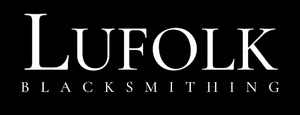I remember the day my teacher wrote "Know thyself" on the blackboard in my philosophy class, I nearly dozed off. Ancient Greek wisdom seemed as distant as the stars, with terms like "ethics," "virtue," and "Forms" floating through our discussions like cosmic debris. But those words would become anchors in my life, tethering me to insights that stretched across two millennia. What began as an accidental encounter with dusty ideas transformed into a lifelong conversation with minds that had wrestled with the same questions that kept me awake at night.
I remember the exact moment Socrates' method clicked for me. During lunch break, my friend was adamant that money was the key to happiness. Instead of arguing, I channeled the ancient philosopher: "What makes money valuable?" I asked. "The things it can buy," he replied confidently. "And those things bring happiness?" Each question peeled back another layer of assumption until he sat back, brow furrowed, realizing his certainty had crumbled into curiosity. That afternoon, I glimpsed the power of questions to unravel our most basic assumptions.
This lesson in questioning everything served me well years later when I stood staring at a promotion letter. The salary was excellent, the title impressive, but something felt hollow. In true Socratic fashion, I began interrogating my desires: What did success mean to me? Was I pursuing my dreams or following someone else's blueprint? The answers led me to resign and pursue my passion: working with my hands.
That's where Plato's Theory of Forms became more than abstract philosophy. In my newly established workshop, I often felt frustrated by the gap between the furniture I envisioned and what my novice hands could create. A wobbly table, an uneven joint – each imperfection mocked my efforts. Then I remembered Plato's insight about the physical world being an imperfect reflection of ideal forms. My mental blueprint was like Plato's perfect Form, and each piece was my attempt to bridge the gap between the ideal and the real. This perspective transformed my failures into stepping stones, each attempt bringing me closer to that perfect form living in my mind.
Aristotle's practical wisdom became my daily companion in the workshop. His emphasis on learning through observation and experience validated my hands-on approach. When I began blacksmithing, I discovered that understanding the theoretical properties of metal wasn't enough – I needed to feel how it behaved at different temperatures, learn the sounds it made when struck, and observe how it changed color as it heated. One summer afternoon, after countless attempts, I finally forged a perfectly balanced knife. The success came not from reading about metalworking, but from what Aristotle would have called empirical knowledge – the intimate understanding that comes only through doing.
The greatest test of these philosophical tools came during the pandemic shutdown. With orders canceled and uncertainty looming, I found myself drawn to the Stoics. In my workshop, now eerily quiet, I read Epictetus's words: "It's not what happens to you, but how you respond that matters." Instead of dwelling on circumstances beyond my control, I focused on what I could do: improve my skills, develop new designs, and build an online presence. The Stoic practice of distinguishing between what we can and cannot control wasn't just ancient wisdom – it became a practical strategy for survival.
In my workshop today, philosophy isn't confined to books on a shelf. It lives in the questions I ask when starting a new project, in the pursuit of excellence in each piece I create, in the practical problem-solving of daily challenges, and in maintaining equilibrium when things go wrong. The sawdust-covered copies of Plato, Aristotle, and Seneca on my workbench aren't just books – they're well-worn tools, as essential as my chisels and hammers.
The journey that began in that drowsy high school classroom continues. Each day in my workshop becomes a dialogue with these ancient thinkers, their wisdom made tangible in wood and metal. Their questions still echo, not in marble halls, but in the quiet moments when craft, creativity, and contemplation become one.
